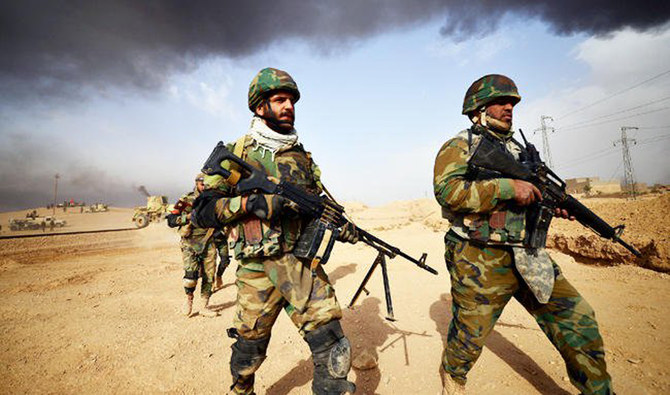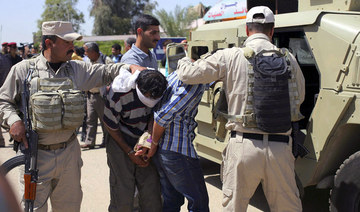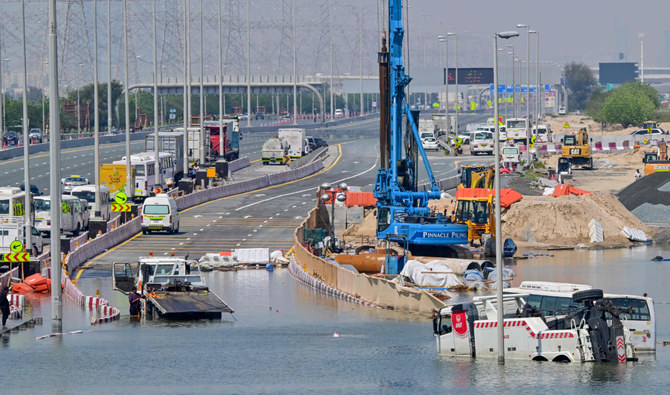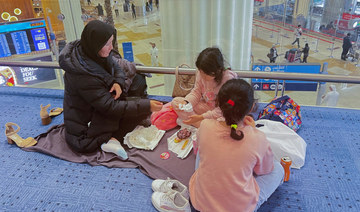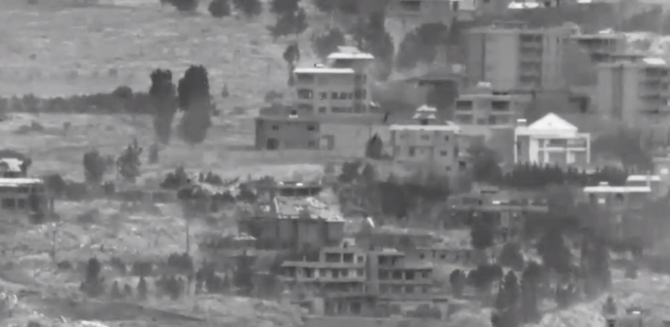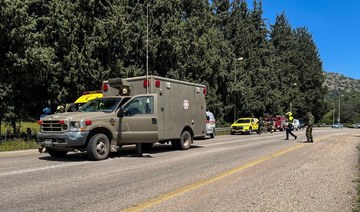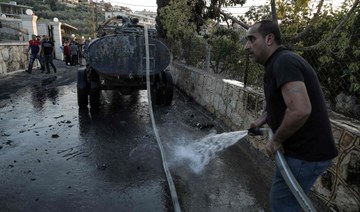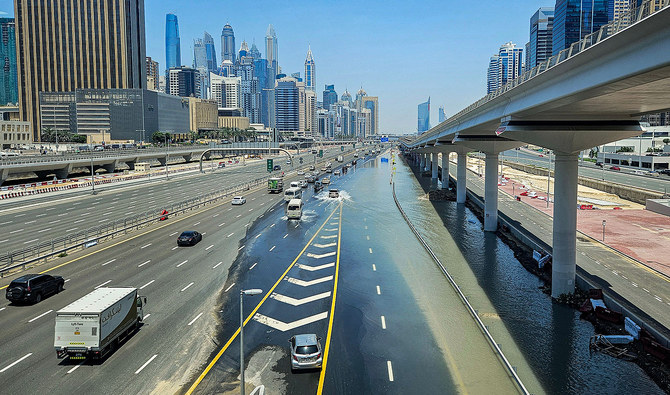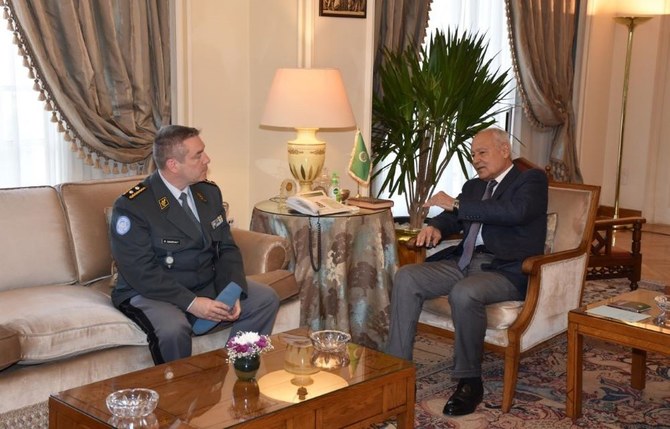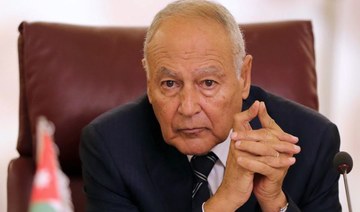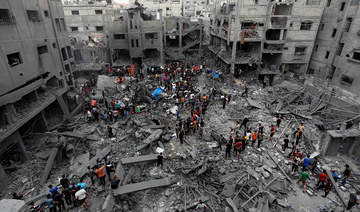BAGHDAD: Iraqi armed groups backed by Iran have been placed on high alert to respond to any action by the US amid growing tension between Tehran and Washington, their commanders told Arab News on Thursday.
Iran has trained and equipped dozens of Shiite, Sunni and Christian armed factions in Iraq.
Most operate under the umbrella of the Popular Mobilization Units (PMU), a government body established in 2014 to cover forces who fought Daesh alongside the government, but they are not subject to the orders of the commander-in-chief of the Iraqi armed forces.
The US deployed an aircraft carrier battle group and other military forces to the Middle East this week in reponse to what Washington said was an “escalated threat” from Iran.
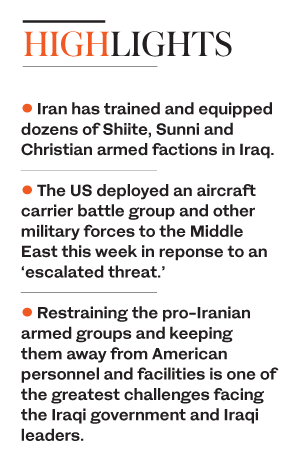 However, commanders of several prominent Shiite armed factions told Arab News they had received no orders to target US troops or facilities inside Iraq, and their orders were “to be fully prepared and to exercise utmost restraint.”
However, commanders of several prominent Shiite armed factions told Arab News they had received no orders to target US troops or facilities inside Iraq, and their orders were “to be fully prepared and to exercise utmost restraint.”
“The resistance factions are ready at the same level for both options, peace and war,” one leader said. “We are fully ready and waiting to see what will happen. The interests of Iraq will decide our next direction.”
A commander in the Badr Organization, the largest pro-Iranian Shiite armed faction, told Arab News no orders had been issued by Iran to target US interests in Iraq, but they had been told to “be ready and await instructions.”
Greatest challenge
Restraining the pro-Iranian armed groups and keeping them away from American personnel and facilities is one of the greatest challenges facing the Iraqi government and Iraqi leaders.
US Secretary of State Mike Pompeo arrived in Baghdad on Tuesday for an unannounced four-hour visit. He met President Barham Salih and Prime Minister Adel Abdul-Mahdi “to obtain assurances that the Iraqi government can curb these factions and cut any financial supplies to Iran through Iraq,” a US adviser in Baghdad told Arab News
“The targeting of the US embassy in Baghdad, or any other US target inside or outside Iraq, by these factions would be considered a declaration of war between Iran and US,” the adviser said.
“So the situation depends on the efforts of the president and prime minister to curb these factions, with the help of Iran.”
The US Republican senator Marco Rubio said on Thursday: “If they attack our 50,000 US personnel and\or our facilities in Iraq, it should be considered no different than a direct attack by Iran.”
The US is thought to be most concerned about Kata’ib Hezbollah-Iraq and Asa’ib Ahl Al-Haq, the most hostile anti-American Shiite armed factions, who carried out deadly attacks against US troops in Iraq from 2007 to 2011.
However, a senior Kata’ib Hezbollah-Iraq commander told Arab News they would not attack any US target if the US did not use Iraqi territory to attack Iran.
“Shiite resistance, especially Kata’ib and Asa’ib, have always been at the forefront of supporters of the Iraqi government ... and avoided embarrassing it in many previous situations, so we would not do this now,” he said.
“But if the Americans use Iraqi territory to strike Muslims in the Islamic Republic of Iran, we will respond, as it would be our ideological duty. In that case, we would not be alone and all the factions of the PMU would join us.”



